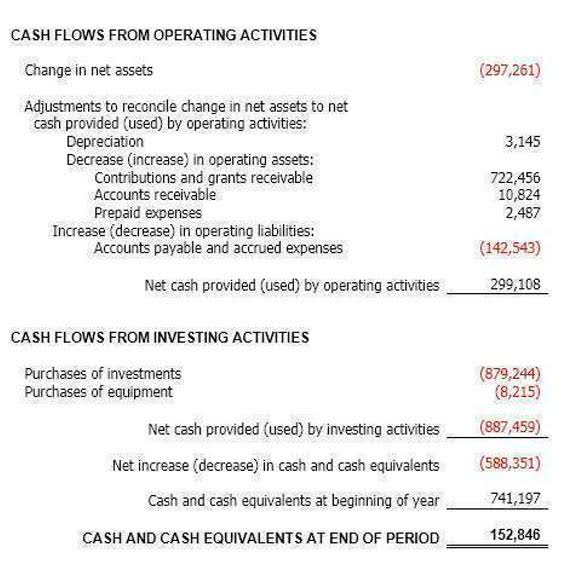
Using the data you gain from keeping a ledger, your next step will be to generate and prepare financial reports for analysis. The major reports to include are the profit and loss, the balance sheet, and a cash flow analysis. Additionally, the aged accounts receivables and aged accounts payables reports are helpful in knowing which customers have not paid and which vendors are yet to be paid. These reports will help you gain greater insights into the financial health of your small business.
Customer service
Not only does bookkeeping help you manage your transactions properly, it also provides the information needed to obtain additional financing for your business. We all have to pay taxes, and to avoid penalties, interest, and other collection activities by the IRS and other tax agencies, you’ll want to pay them on time, and you’ll record keeping for small business want to pay them accurately. Use it to receive income from your clients and pay your business expenses. If the IRS finds that you don’t have all receipts necessary for your business (from $75 and more), you can get penalized. As a result, you can experience gross income deductions before calculating the tax bracket.
Bookkeeping Helps You Prepare for Taxation
It’s also important to keep your personal expenses separate from your business expenses for reporting and liability reasons. When you first begin the bookkeeping journey, collect everything you have that could be relevant to establishing financial history. Business accounting software and modern technology make it easier than ever to balance the books. A platform like FreshBooks, specifically designed for small business owners, can be transformational. Accountants rely on bookkeeping records to analyze and advise on the financial activity, health, and growth potential of a business. Bookkeeping is how businesses, entrepreneurs, and decision-makers monitor a company’s overall financial health and activity.
Create your free account now
You’ll be responsible for accurate payments to employees and taxing authorities. With tax codes frequently changing, it’s important to ensure you follow the most current laws and regulations. Whether you take on your small-business bookkeeping yourself or end up outsourcing to an expert, https://www.bookstime.com/ understanding the basics will help you better manage your finances. You’ll save time chasing receipts, protect yourself from costly errors, and gain valuable insights into your business’s potential. You have been recording journal entries to accounts as debits and credits.
- Accrual basis accounting records those invoices and bills even if the funds haven’t been exchanged.
- But as soon as you see growth in your company, it will soon be essential to have a highly detailed, consistent bookkeeping approach.
- With an LLC, you’re personally protected in the case of debts or lawsuits against your company, which might make it a more attractive option than a sole proprietorship.
- If you’re still feeling uncertain, don’t be afraid to speak with a professional bookkeeping service about securing their help.
What method should you choose to keep your books?

GAAP stands for Generally Accepted Accounting Principles, which are the best methods you can use to track and manage your business financials. These are methods used by most people in the accounting profession, so if your bookkeeping is ever questioned, your methods will be accepted by others. Whichever accounting method you choose, the best way to make sure you’re dotting your i’s and crossing your t’s is to maintain order in the way you manage your bookkeeping.
Your Guide to Small Business Accounting
Some accounting software products automate bookkeeping tasks, like transaction categorization, but it’s still important to understand what’s happening behind the scenes. It all begins with getting your accounting software set up correctly. Financial transactions are business activities that involve money, such as sales, expenses, and payments. Recording and organizing these transactions in a timely manner is essential for effective bookkeeping.

Moving money from one account to another is like moving a five dollar bill from one pocket to another. You’re not actually making or losing any money—it’s just in a new place. Liabilities refer to money you owe that will leave your business and get paid to another party at a future date. The Chartered Professional Accountant firm directories on the American Institute of CPAs website is another great place to find a bookkeeper. Her work has been featured on US News and World Report, Business.com and Fit Small Business. She brings practical experience as a business owner and insurance agent to her role as a small business writer.
Set up a payroll system.
- Before you take on any small-business bookkeeping tasks, you must decide whether a single- or double-entry accounting system is a better fit.
- For example, if you prepare and post an invoice in the amount of $150 to John Brown for consulting, you’ll need to record that information in a journal entry.
- You’ll want to pay extra attention to your income statement (also known as a profit and loss statement).
- You might be trying to determine which bank account is best for your business and the difference between debits and credits while juggling the many record-keeping habits you need to manage.
- Experts with experience and specialized industry specific exposure helps in regulatory and other legal requirements and compliance while also providing advisory services.
- We all have to pay taxes, and to avoid penalties, interest, and other collection activities by the IRS and other tax agencies, you’ll want to pay them on time, and you’ll want to pay them accurately.
You can expect most bookkeepers to maintain the general ledger and accounts while the accountant is there to create and interpret more complex financial statements. The accrual accounting method records financial transactions when they occur rather than when cash exchanges hands. When setting up a bookkeeping or accounting system for your small business, you first need to decide between manual record keeping, using business accounting software, or hiring an outside firm. You’ve created your set of financial accounts and picked a bookkeeping system—now it’s time to record what’s actually happening with your money. Apart from having the data for your transaction on hand, you’ll need to decide which accounts that will be debited and credited.
